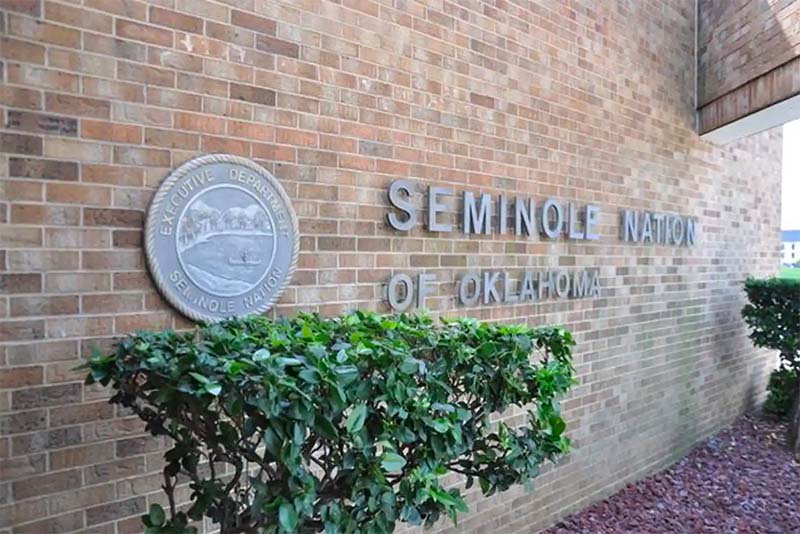
- Details
- By Lenzy Krehbiel Burton
WEWOKA, Okla. — Two east-central Oklahoma tribes are taking additional steps to address the spread of COVID-19 in their communities.
Citing the continued rise in local COVID-19 cases, the Seminole Nation of Oklahoma announced Tuesday morning it was temporarily closing its tribal complex for the rest of the week and will reopen next Monday.
The closure does not extend to the tribe’s three casinos.
According to data published by the Oklahoma State Department of Health, Seminole County has 30 active COVID-19 cases as of 11 a.m. Tuesday, including nine in Wewoka alone. However, those figures may not be accurate, as state officials acknowledged that case counts for Sunday and Monday were low due to technical glitches.
Meanwhile, west of the Seminole Nation, the Citizen Potawatomi Nation implemented a mask mandate on Monday. The number of cases within Pottawatomie County has doubled since June. As of 11 a.m. Tuesday, more than two-thirds of the county’s cases are in Shawnee, the tribe’s headquarters
The face covering order applies to both employees and guests at all of the tribe’s buildings, including its business entities. Masks must cover both the nose and mouth.
In addition to its two casinos, the tribe operates a bank, a chain of discount grocery stores, a pizza restaurant, a frybread restaurant, a golf course, a bowling alley, two convenience stores, a baseball and softball field complex, an indoor shooting range and an outdoor clay shooting facility.
Children 10 and under will not be required to wear a mask. People who are unable to remove the face covering without assistance are also exempt. Guests may remove masks while they are eating or drinking but must still social distance. Guests are also allowed to remove their masks if they are outside and able to social distance from other guests, and visitors who arrive at a Citizen Potawatomi business or government facility will be asked to mask up or will be turned away.
“This policy is similar to what other major retailers and employers have implemented,” Chairman John “Rocky” Barrett said. “It’s a simple step to take to protect each other and keep our communities healthy.”
In early July, the Choctaw Nation of Oklahoma made it a requirement to wear masks on tribal property until further notice. The decision came days after the tribe made masks mandatory for visitors at all Choctaw casino properties.
More Stories Like This
Native News Weekly (August 25, 2024): D.C. BriefsUS Presidents in Their Own Words Concerning American Indians
Native News Online Marks 15 Years of Warrior Journalism
I’m a Minneapolis Postal Worker. This Is What I Saw.
Next on Native Bidaské: Inside Dark Winds with the Cast of Season 4
Help us defend tribal sovereignty.
At Native News Online, our mission is rooted in telling the stories that strengthen sovereignty and uplift Indigenous voices — not just at year’s end, but every single day.
Because of your generosity last year, we were able to keep our reporters on the ground in tribal communities, at national gatherings and in the halls of Congress — covering the issues that matter most to Indian Country: sovereignty, culture, education, health and economic opportunity.
That support sustained us through a tough year in 2025. Now, as we look to the year ahead, we need your help right now to ensure warrior journalism remains strong — reporting that defends tribal sovereignty, amplifies Native truth, and holds power accountable.
 The stakes couldn't be higher. Your support keeps Native voices heard, Native stories told and Native sovereignty defended.
The stakes couldn't be higher. Your support keeps Native voices heard, Native stories told and Native sovereignty defended.
Stand with Warrior Journalism today.
Levi Rickert (Potawatomi), Editor & Publisher
